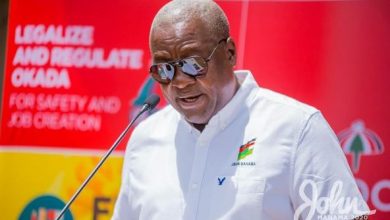
The Government of Ghana has reassured its private sector that swift action will be taken following the United States’ decision to impose a 10% universal tariff on imports, including Ghanaian products, effective April 5, 2025.
This marks the end of Ghana’s duty-free access under the African Growth and Opportunity Act (AGOA) and presents significant challenges for exporters of key goods like apparel, cocoa derivatives, gold jewelry, and shea butter.
The tariff announcement, made on April 2, 2025, is part of a broader set of measures under the International Emergency Economic Powers Act (IEEPA) aimed at addressing trade deficits and national security concerns.
Goods in transit before April 5 will be exempt, while reciprocal tariffs ranging from 11% to 50% will apply to over 50 countries starting April 9. Certain products, including copper, pharmaceuticals, and critical minerals, will be exempt from the tariffs, but Ghana’s priority exports are not among them.
In response, Ghana’s Ministry of Trade, Agribusiness & Industry is working with stakeholders to assess the economic impact and develop strategies for mitigating the effects. On April 7, ministers of trade, finance, and foreign affairs will meet with the U.S. ambassador to Ghana to seek clarification on potential exemptions and advocate for Ghana’s trade interests.
The government has emphasized its commitment to minimizing disruptions for exporters and ensuring a stable environment for investors.
The abrupt imposition of these tariffs threatens to destabilize Ghana’s export-driven sectors, particularly small-scale producers of shea butter, horticultural products, and cashew nuts. Analysts caution that the added costs could undermine Ghana’s competitiveness in the U.S. market, which remains a significant destination for non-traditional exports under AGOA.
Exporters have expressed concern about potential job losses and revenue reductions. The Ghana National Chamber of Commerce has called for immediate government support, such as subsidies or tax relief, to help businesses adjust. Trade experts also urge the U.S. to reconsider the tariffs for AGOA beneficiaries, arguing that the decision contradicts ongoing efforts to foster African economic growth and development.
The government has pledged to keep stakeholders informed and focus on measures to protect Ghana’s trade interests. Additional updates will follow the diplomatic discussions on April 7. The Ministry is also exploring alternative markets and accelerating regional trade partnerships under the African Continental Free Trade Area (AfCFTA) to mitigate the impact.





